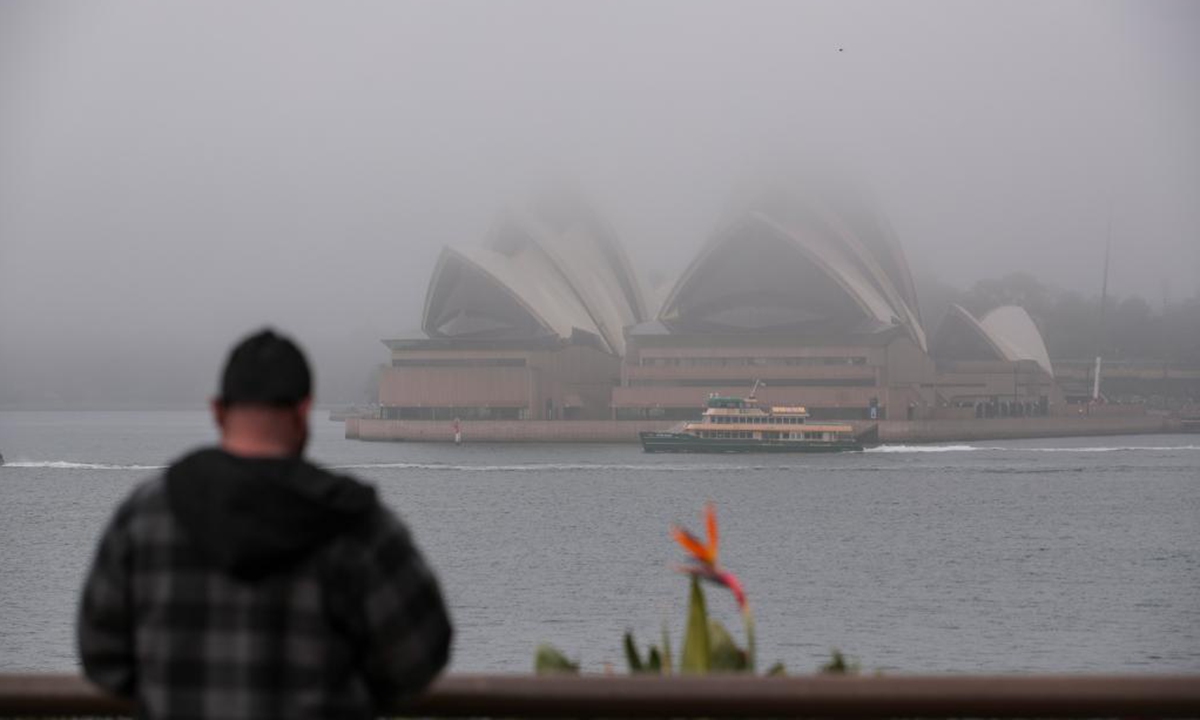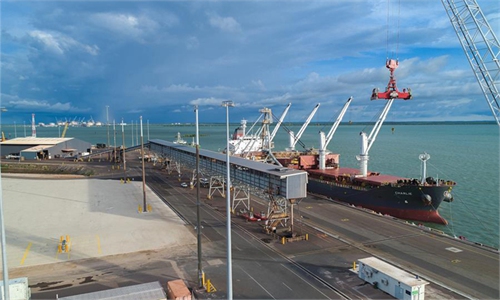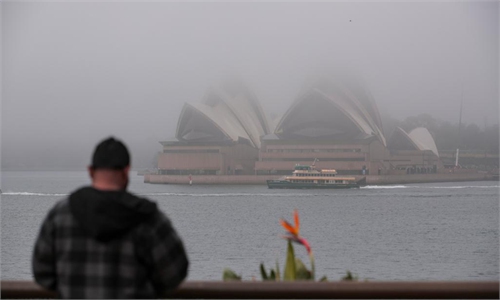Opinion: Polls suggest serious trouble for China-Australia economic ties. How long can Albanese ignore it?

Heavy fog floats above the Sydney Harbour Bridge in Sydney, Australia, on June 30, 2021. Photo: Xinhua
Two new public opinion polls in China and Australia have painted a rather dire picture for the bilateral economic and trade relationship, which has been enormously beneficial for the Australian economy for decades. The remarkably souring attitude of the Chinese business community and the general public toward Australia should be another stern warning for the new Australian administration that it can no longer take an opportunistic approach toward China.
In an online survey conducted by the Global Times Research Center and the Australian Studies Center of the Beijing Foreign Studies University, from June 21 to 23, 72.5 percent of respondents agreed that China should diversify its import sources of iron ore, natural gas and other products and reduce imports of energy products from Australia. This is particularly significant because iron ore and natural gas, among other resources, are the cash cow of Australia's economy.
Meanwhile, 53.8 percent of the respondents believe that Australia overly relies on China economically, while only 17.2 percent say they believe China is overly reliant on Australia. In comparison, 36.2 percent say the US overly relies on China economically and 21 percent say China is overly reliant on the US.
A total of 2,253 people aged between 18 and 70 from 10 cities across China, including Beijing and Shanghai, participated in the survey. Among the respondents, over 54 percent say Australia is mainly responsible for the tensions in bilateral ties.
One does not need more proof to gauge the icy China-Australia relationship these days but the new poll offers fresh signs that diplomatic tension is increasingly weighing on economic and trade ties, which have so far been largely stable despite groundless claims of "economic coercion" by Australian officials.
In many ways, the trouble for bilateral economic ties, or more specifically, for the Australian economy, has already started. According to a report by KPMG and the University of Sydney, Chinese investment in Australia declined by 69 percent, from A$2.5 billion ($1.9 billion) in 2020, to A$800 million in 2021, the lowest level in the past 15 years. Meanwhile, Chinese investment to Europe and countries along the Belt and Road surged significantly. The report prompted some Australian media outlets to claim Chinese businesses were "fast abandoning" Australia.
An investigation by the Global Times into the claim also revealed that Chinese investors are increasingly giving up on the Australian market and looking elsewhere, as they experienced a dangerous level of hostility and discrimination from the Australian authorities as well as an anti-China feeling in the broader Australian society. The general attitude of Chinese investors toward Australia is, as one entrepreneur put it, "there are many options other than Australia."
How hostile is Australia toward China and Chinese businesses? According to the 2022 Lowy Institute poll published on Tuesday, 63 percent of Australians say China is "more of a security threat" to Australia in 2022, compared to 12 percent in 2018, while 33 percent say China is "more of an economic partner" to Australia, compared to 82 percent in 2018.
For any fair-minded person who has been following China-Australia relations in recent years, it should not be hard to see where that hostility comes from. For years, Australian officials, particularly former Australian Prime Minister Scott Morrison and his lieutenants, have been relentlessly pushing the "China threat" theory in seeking their own political self-interests and appeasing their masters in Washington. Given Canberra's constant provocations against China, it should be no surprise that public opinion on both sides are falling at a dangerous pace and Australia is about to reap what it sow.
Falling public opinion may temporarily boost profile of certain populist, hawkish Australian politicians, but it could be devastating to the Australian economy, which provides livelihood for 26 million Australians. Australian officials, including the new Prime Minister Anthony Albanese, understand and actually anticipate this. That is why they already started to try to shift blames into China by cooking up claims, such as "economic coercion," while turning a blind eye to their unreasonably provocative approach toward China.
But the hard truth is that what goes around comes around. Australia will eventually pay dearly for the irresponsible vicious words and deeds of their leaders. Canberra has already pushed itself into a vicious circle in antagonizing China and Albanese has a real opportunity to pull himself out. But will he? Only time will tell.
The author is an editor with the Global Times. Bizopinion@globaltimes.com.cn




